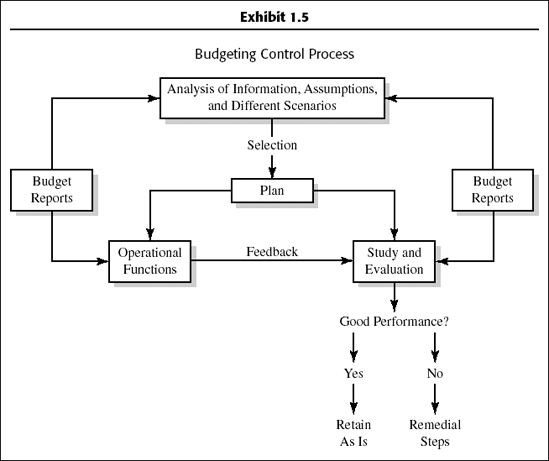1.11. Motivation
Budgets can be used to affect employee attitudes and performance. Budgets should be participative, including participation by those to be affected by them. Further, lower - level employees are on the operating line every day so they are quite knowledgeable. Their input is needed. Budgets can be used to motivate because participants will internalize the budget goals as their own since they participated in their development. Information should be interchanged among budget participants. An imposed budget will have a negative effect on motivation. Further, there is a correlation between task difficulty and loss of control to negative attitudes.

A budget is a motivational and challenging tool if it is tight but attainable. It has to be realistic. If the budget is too tight, it results in frustration because managers will give up and not try to achieve the unrealistic targets. If it is too loose, complacency will arise and workers may goof off.
The best way to set budget targets is with a probability of achievement by most managers 80 to 90 percent of the time. Performance above the target level should be supplemented with incentives including bonuses, promotion, and additional responsibility.
Get Budgeting Basics and Beyond now with the O’Reilly learning platform.
O’Reilly members experience books, live events, courses curated by job role, and more from O’Reilly and nearly 200 top publishers.

